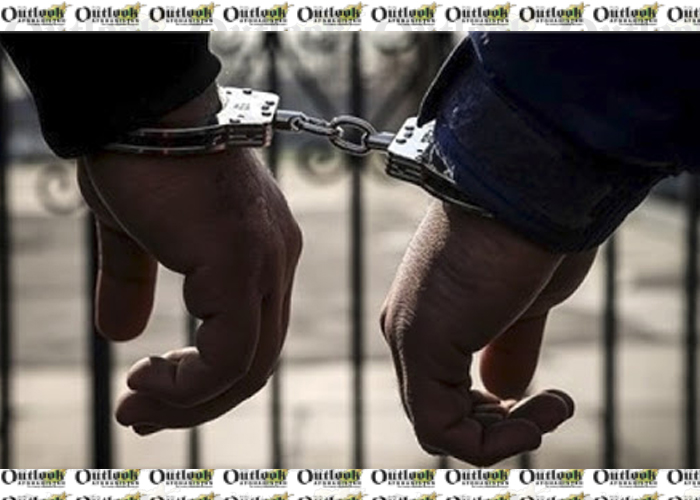Administrative corruption has been one of the hottest national topics in Afghanistan since 2001. Because of indecisive position of the government during the former president, Hamid Karzai, the root of corruption has more expanded in the country devouring billions of international aid since then. Instead of punishment of big corrupt officials, he advised them not to export the national wealth if they cannot stop thieving and he implored to invest inside the country. In some cases, the people have referred to informal justice when corruption and bribery have changed to a practice and culture in the justice systems. Even, it is said that people refer to Taliban courts because of distrust on justice system of the country. For example, once the Transparency Watch released a methodic report showing that 43% people had willing to refer to Taliban at their locale when face legal cases. Accordingly, it is heard that the justice system of the country not only suffers from administrative corruption but also from political interferences and lack of specialized personnel in these institutions. Therefore, the existence of corruption has not only increased the distance between the government and people, but also endangered the survivals of the government in the country.
Fortunately, in recent months, there has seen some positive and promising development in prosecution of high-ranking government officials and those who used to live on the safe margins of those officials have been arrested. The continuation of this process will undoubtedly be effective provided that these actions are not selective. We must note that we cannot convince people by selective actions and without providing clear response why hundreds of corruptions factors have not been penalized in last two decades? Despite frequent corruption scandals, why no ones are executed as a practical example of rule of law in the country? Why the judiciary system does not seem free from the political and executive influence of others? Why the principle of equality and impartiality is meaningless in the courts of Afghanistan? Why the big assassinators and drug smugglers have never been penalized in the country? And many other questions alike?
Unfortunately, none of the questions have been answered blamably because of lack of decisive will. In fact, providing answers to these questions are not easy in the current politicized conditions of the country. What can provide answers to some of social and cultural root of corruptions in the country. Unfortunately, our culture has also role in providing ground for corruption occurrence making a desirable value for the majority of people in a society. The following are some of the socio-cultural factors that have contributed to the spread of corruption in Afghanistan.
The first cultural factor behind the corruption is decline of moral principles in the country. The ministry of education and ministry of information and culture that are responsible for promotion of moral principles to young generation are at lowest social and financial position in the country. The social and moral principles are not deeply taught to members of society, especially to the younger generation and children In Afghanistan. For example, the rich and corrupt people are more respectable than honest, pious and knowledgeable people. As a result, the culture of chastity, honesty, forgiveness, fairness, shamefulness and adherence to promises, commitment are decreased, and vice versa, culture of hypocrisy, pretense of piety, lying, deception, disbelief, etc are encouraged. In such a culture, corrupt people play the role of middleman normalizing corruption in the country. In addition, the views of our officials towards corrupt people are relatively emotional and tolerant although recently the first vice president has breached this approach displaying the photos of criminals in public roads and high ways in Kabul city. Therefore, if the moral principles are not revived, and if our emotional approaches are not changed, we will not achieve any desired result from fighting against corruption in the country.
Accordingly, we are the heritor of a weak political culture. Unfortunately, many of the political and administrative decisions are made on the basis of ethnocentric consideration, not technical or scientific considerations. Technically, if we have a serious and general mechanism for controlling corruption, no one dare to escape from law. For example, if there is an official unit to register the property of all people, especially politicians, no one can escape from clutches of law. As in most other countries, the government not only registers the property of politicians but also register the property of ordinary people. Overall, if we do not establish such serious mechanism in the country, we should not expect to overcome the current problems because corruption is the mother of all problems as it keeps breeding farther problems in the country.
The last factor behind the corruption is poverty and unequal distribution of resources and opportunities which not only paves the way for rise of social crimes but also increase urbanization. Villagers move to cities when governments are unable to distribute resources fairly and provide employment opportunities in small, less developed villages and towns. As urbanization increases in a society and people move from rural to urban areas, corruption increases due to intensified competition and population density and lack of resources and facilities. Urbanization in countries that do not have a sound political system, in addition to political-economic challenges, transforms urban culture forming a mixture of different wanted or unwanted cultures. As a result of cultural decline, corruption spreads and structured in a variety of complex ways, emerging as a desirable, inevitable, and entrenched value.
Home » Opinion » The Socio-Cultural Factors of Crimes in Afghanistan
The Socio-Cultural Factors of Crimes in Afghanistan
| Mohammad Zahir Akbari

